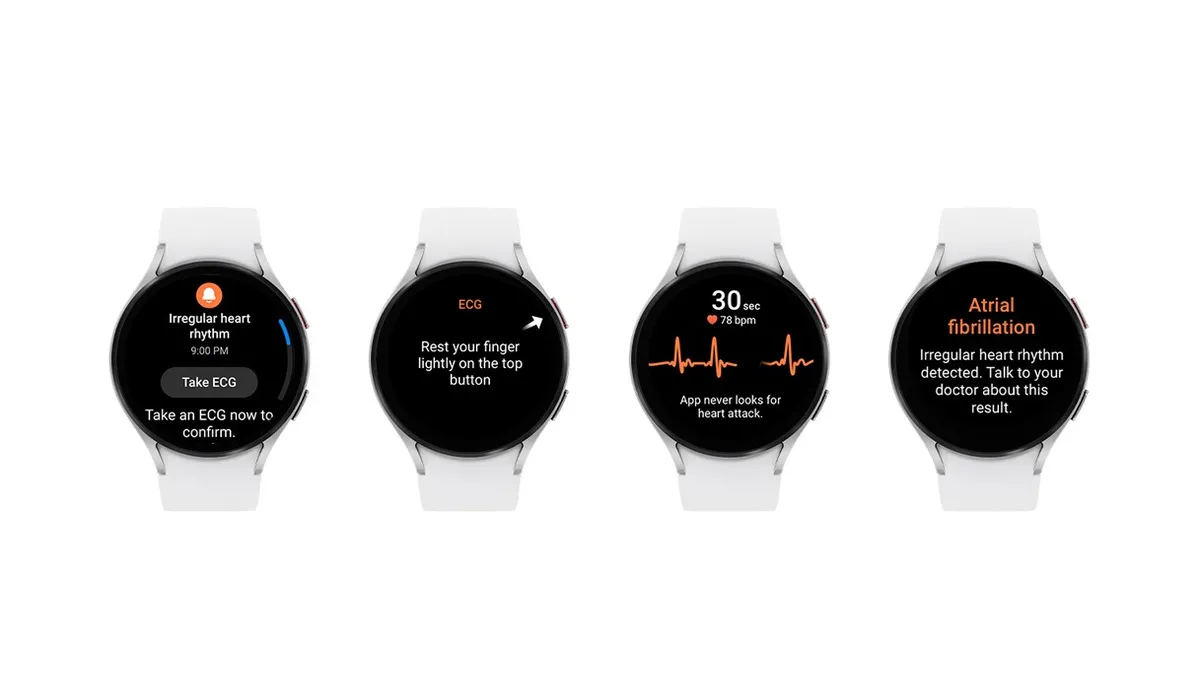Dive Brief:
- Samsung has received clearance from the U.S. Food and Drug Administration for an irregular heart rhythm notification feature for its Galaxy Watch devices to passively monitor wearers for signs of atrial fibrillation (Afib).
- The feature uses a sensor built into the Galaxy Watch, and an electrocardiogram function that Samsung added to its Health Monitor app, which already allowed people to take an ECG reading and flagged potential cases of Afib.
- With the ability to monitor for arrhythmias, Samsung is now able to compete with Apple and Fitbit, which have similar features in their smartwatches.
Dive Insight:
AFib, one of the most common heart arrhythmias, can lead to stroke and heart failure. Recently, companies have been adding features to consumer wearables to help detect the condition.
Last year, Apple and Fitbit, which is now owned by Google, added features to continuously monitor for atrial fibrillation using their smartwatches. The technology was a step forward from previous iterations, which only allowed people to “spot check” for the condition by taking an ECG recording at a given time.
Fitbit’s version of the technology is intended to help people detect asymptomatic cases of AFib that could otherwise go undetected, allowing them to bring the problem to their doctor and seek further testing. Apple’s version, on the other hand, is designed specifically for people with irregular heart rhythms to give them an idea of how much time they spend in AFib.
Samsung’s new technology is closer to Fitbit’s. Once the feature is activated, it checks for irregular heart rhythms in the background. If a certain number of consecutive measurements are irregular, users will get a notification about potential AFib activity, prompting them to take an ECG using their watch for a more accurate measurement.
Samsung plans to add the feature to its new One UI 5 Watch later this year, and expand it to older versions of its Galaxy watches later.













